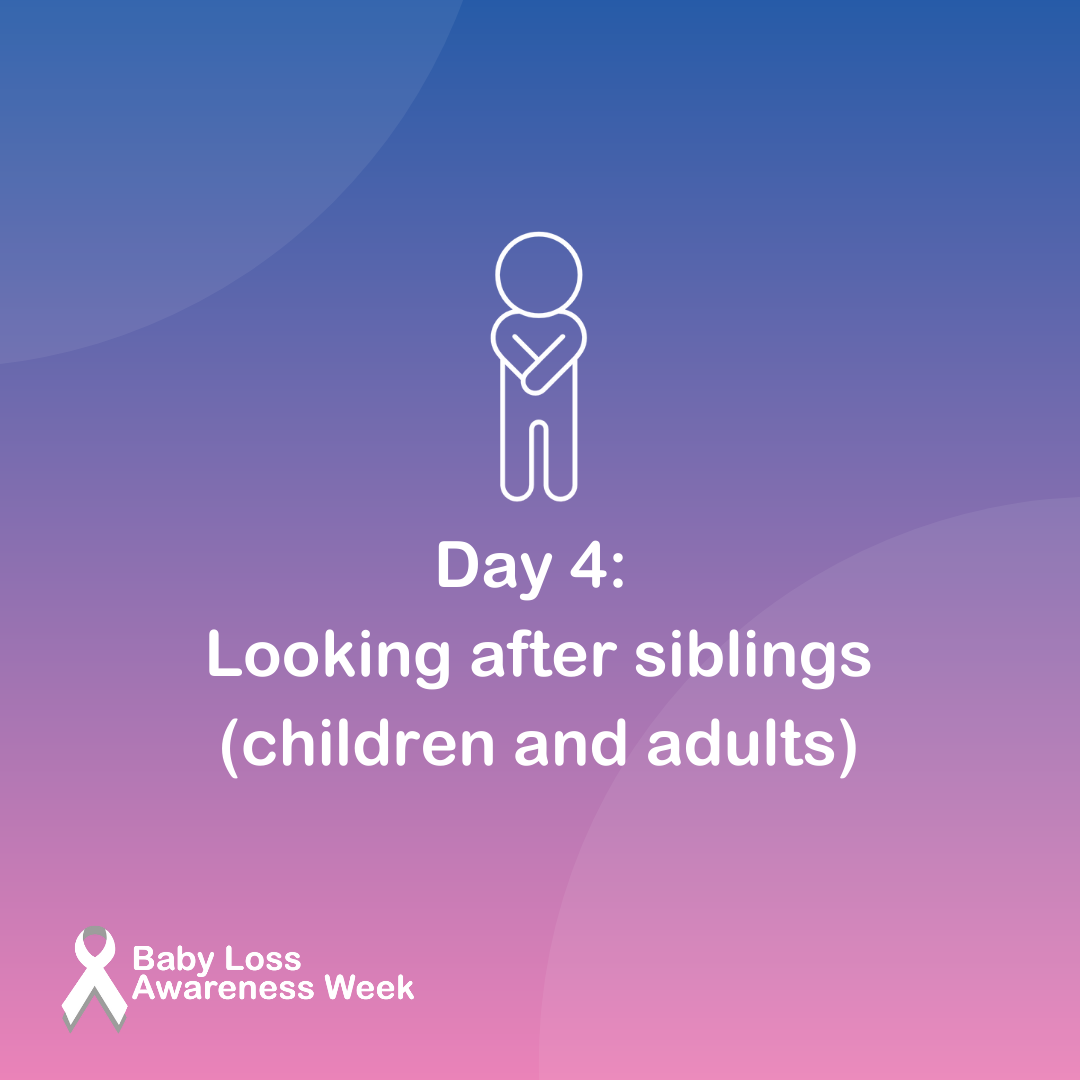
12 Oct Day four of Baby Loss Awareness Week: looking after siblings
If you’re the brother or sister of a baby who died it may feel like there is a missing piece of the family. If you’re younger than them you may only know about your sibling through what you’ve been told or seen in photos. Even if you were living at the time, your childhood memories may have faded over time.
Grief will feel different for parents and for siblings but the sense of loss matches. You may feel you missed out on a part of your childhood, or milestones like starting school together or having them present at other family celebrations. You may have found that the focus of other people tends to be about how the loss affected your parents and that as a sibling your grief can be overlooked.
Your identity as a brother or sister may feel unreal, especially if you have no other siblings and were seen by others as an only child. It’s right that you would want to talk about your sibling as part of your family but you may have found this harder if you are carrying their memory on your own. You may also be carrying feelings of guilt about the fact that you lived and your sibling didn’t, this can be especially difficult if you were twins.
Some people may find out much later in life that they had a brother or sister, because their parents never spoke about them at the time. You may have found out after your parents themselves had died, perhaps being told by an aunt or uncle and found this shocking and unsettling.
Telling anyone that a baby has died can be difficult. For parents, telling their children that their brother or sister died can be especially challenging as it can be hard to work out the right amount of information to provide them with and to explain it in a way that works for their age and ability. It can also be difficult to offer reassurance to children about a situation that cannot be changed.
Each day during the Week we’ll be sharing the stories of people who’ve found different ways to look after their wellbeing. Today we’re sharing Emma’s story.
Tips on looking after yourself
The following tips are simply suggestions that we hope may be helpful, but it’s all about finding what works for you.
For parents:
- Memory boxes: you can order a Sands memory box at any time, no matter when or how your sibling died. You could add photos or comforting quotes to it or speak to family members if you find it difficult to recall your own memories of your sibling.
- Children are naturally curious and may have many questions around how their brother or sister died, what has happened to them and where they have gone. Having simple ways to explain this to them can help when parents are grieving. Children may need reassurance that it’s not their fault.
- Children may not know they feel sad, so helping them to name their emotions can be a good way to support them. Feelings cards or a chart are gentle ways to help them notice their own feelings and open up a conversation about what helps them when they feel strong emotions.
- Children can show sadness or worry through their words or their actions. Their behaviour may change as part of their grief, so it is important to offer opportunities to express how they feel. If identifying feelings is hard, you can talk about what they feel like doing to help them express themselves.
- You don’t have to answer children’s questions straight away, but acknowledge it’s an important question and that you will answer it later.
For older siblings:
- Starting conversations with long-ago bereaved parents in your family can be hard. You can ask about what that time in the family’s history was about, being sensitive to how they remember and what they hold on to.
- Being a bereaved sibling after your parents have died can leave you with questions that may not have answers, so you may like to write them down and share with a trusted friend or peer.

Sorry, the comment form is closed at this time.